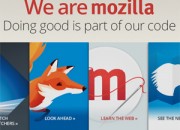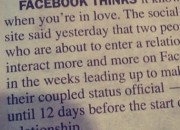The website FetLifeSearcher.com enables people to search the kinky social network FetLife without first logging in. The existence of this site and similar tools illustrates the enormous and unspoken security issue that unfortunately, has come up before. Running a search returns users’ FetLife profile pictures, usernames, ages, genders, kinky orientations, locations and a snippet from their profiles with the option to show more.
teh inetrwebz
Today the e-mail marketing service provider MailChimp pulled the plug on Sexcusé Moi, a high-end online boutique that offers sensual products ranging for adults. In an e-mail to the boutique’s founder, MailChimp said, “Nothing personal against your content or industry; there are just some very strict spam filters and ISP rules that we have to comply with to maintain the best possible sending environment.”
Today, the social mapping company Waze announced it had acquired the dating and hook-up platform SingleSpotter, enabling them to offer their users a product called WazeDates, which gives drivers access to one another’s relationship status, so they can determine whether to send a private message or continue with road rage as usual. This is, of course, an April Fool’s joke, but to single commuters who spend a good chunk of their lives in a car, it’s no laughing matter.
Last week, a user-generated campaign urging women to post photos of themselves without makeup raised $3 million for cancer research. Inspired, a man decided to bring the fundraising effort to other men, and kicked off the #cockinasock campaign. The result has been a massive influx of pix featuring guys wearing socks on their penises, a la Red Hot Chili Peppers. And it’s kind of amazing.
Carin Bondar, the scientist who brought us the web series Wild Sex — about the weird and kinky sex rituals in the animal kingdom — is working on a new show about the wondrous place where sex and biology collide. Called Sex Bytes, this new offering features fast, quirky little weekly videos centered on a specific topic, drawing on scientific literature.
Increasingly, Twitter has come to realize how difficult it is for social networks to allow people to self-express in today’s sex-negative and panic-prone environment. Despite refusing to do away with porn after the “Dildoplay” incident that infuriated Apple, Twitter nevertheless began to hide results for certain hashtags on Vine, like #nsfw and #boobs. And now, a year later, it has finally decided to give in and ban the porn.
“When we’re too scared to defend sex work, because it’s not our battle, because there’s a legal gray area we’re scared to touch,” writes sex educator Sabrina Morgan, “we’re saying it’s okay to let the sex workers — our front-line sex educators — take the bullets as long as we get to play the game. And we get to play the game only as long as we play it safe. Playing it safe means being afraid to show what it is that we’re teaching.”
I’m fond of joking that we haven’t seen Love in L.A. since that incident on the back forty in ’39. As it turns out, it may not really be a joke. According to Facebook, Los Angeles is the second best city in the nation for singles. And by “best,” they mean that if you want to be single and stay that way, the City of Angels is the place to be. Raise your hand, Angelenos, if you needed an official report to tell you that.
“Revenge porn” websites typically run sexually explicit or suggestive photos of individuals along with identifying information. They got the name “revenge porn” because, initially, a lot of the photos and films that got online were posted as an act of revenge by a jilted lover. But “revenge” is not the right descriptor, considering the tactics used by many operators of such sites. A much more apt term, perhaps, is “involuntary porn.” Now meet its barons.
















